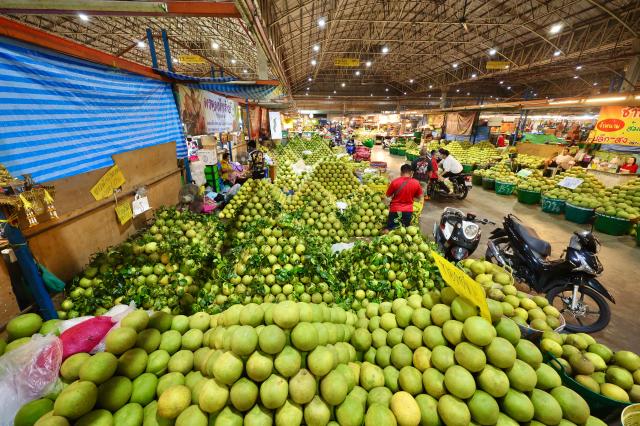
SEOUL, October 14 (AJP) - The Thai Market was already alive with energy. The first impression upon entering was the sheer scale. The space stretched across what felt like several football fields, with a ceiling as high as a five-story building. Yet even that vastness was filled with the scent of fruit. The air was thick with the sweet, heavy fragrance of mangoes, durians, bananas, dragon fruit, and pineapples.
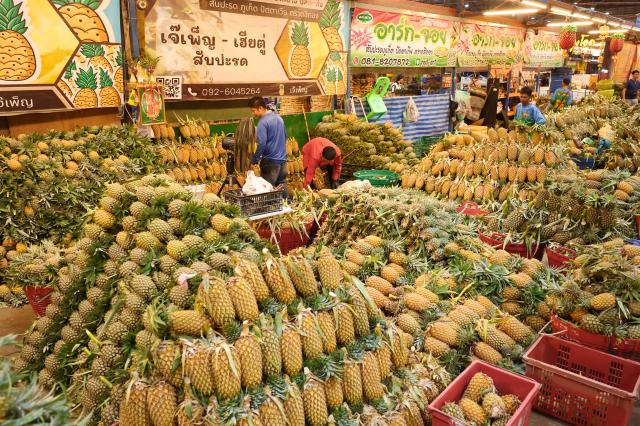
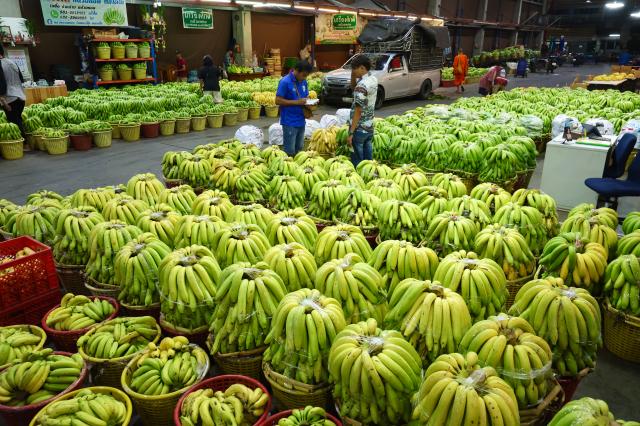
Located about an hour’s drive from Suvarnabhumi Airport, this market—whose name, “Talaad Thai” literally means “Thai Market”—is the largest wholesale market in the country.
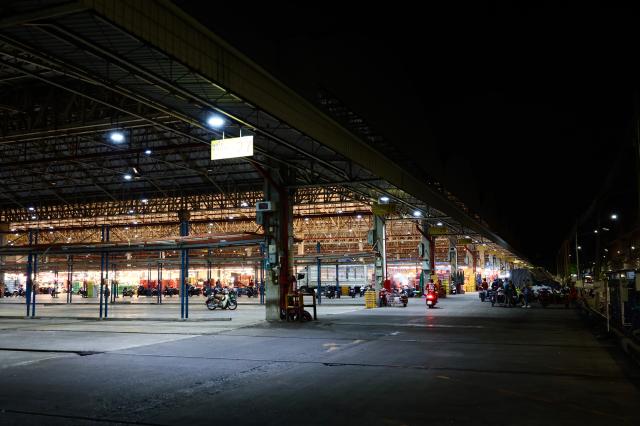
Fruits were piled high like mountains. Pomelos and pineapples formed pyramids, and vendors stood atop trucks unloading crates with astonishing speed. Each section dedicated to a single fruit seemed to hold several tons. Trucks from across Thailand began arriving around 3 a.m., joined by motorbikes fitted with cargo platforms. Headlights flickered on one by one, engines rumbled, and the market woke to life. Once the fruit arrived, the real work began—unloading, trimming, sorting, and boxing. Teams of workers handled knives and boxes with the precision of professionals. Every piece was inspected for quality, graded by size, and packed for delivery. The entire process took place before dawn so the fruit could reach markets and restaurants across Bangkok by morning.
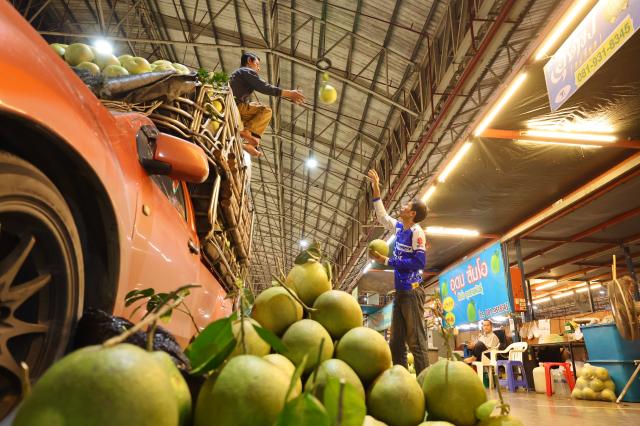
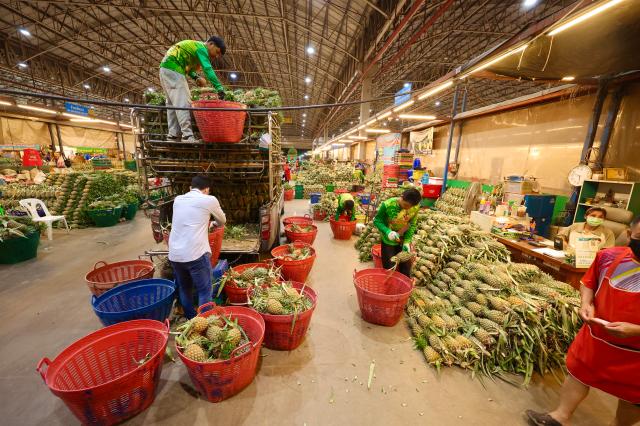
The workers moved with the rhythm of a well-trained dance troupe. No one gave orders, yet everyone knew their role—one person tossing boxes from the truck, another catching and stacking them, others sorting and repacking. Their coordinated movements were seamless.
The biggest attraction of Talaad Thai is its price. Even in Thailand, where food is known to be affordable, this market stands apart. Fruits here cost about 30 percent less than at regular stores or supermarkets. The reason is simple: there is no middleman. Farmers sell directly to restaurant owners and retailers. By morning, the fruit that arrived in the dark spreads across the city—from luxury hotel buffets to street stalls.
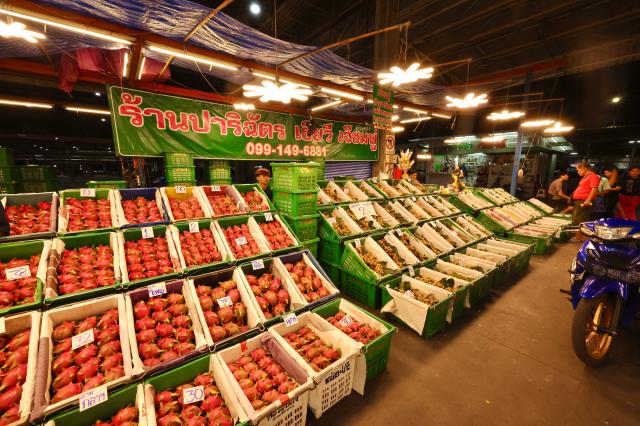
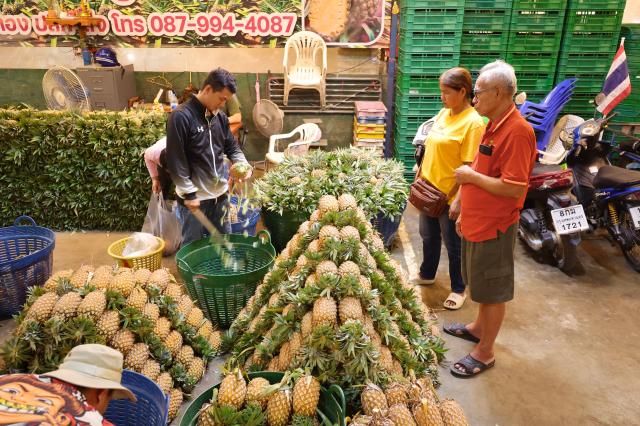
Although it is a wholesale market, individuals can also buy here. Locals often come with friends or neighbors to share their purchases.
The variety of fruit is astonishing. The durian section, unique to Southeast Asia, is especially memorable. Known as the “king of fruits,” durians are stacked by size, their rich aroma noticeable even meters away. At first the smell can be overwhelming, but it soon becomes familiar—earthy, nutty, and sweet. The banana section is equally striking, with green bunches stretching like a sea. Hundreds, even thousands of clusters are arranged neatly in rows. Mangoes, in contrast, display a palette of colors—yellow, green, and red-tinted varieties. Each type serves a different purpose: some are eaten fresh, others are used in cooking or juicing.
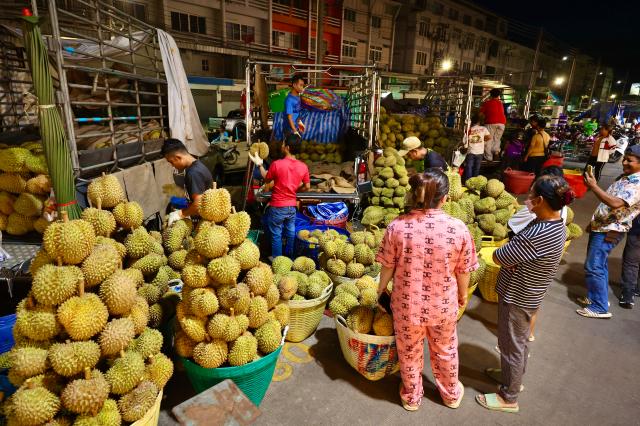
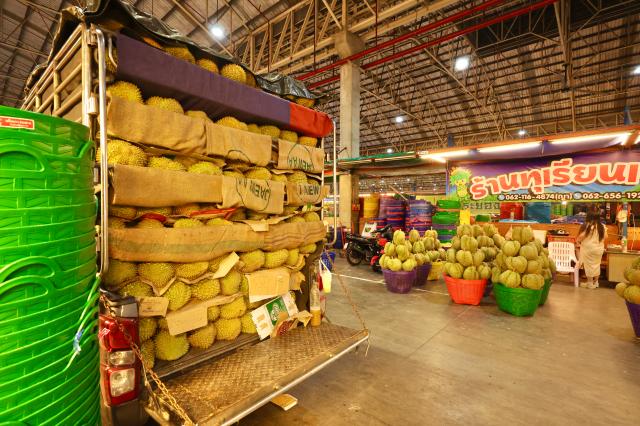
Talaad Thai is not a tourist attraction. There are no flashy signs or English explanations, and the wet floors glisten with fruit juice. But that rawness is its charm. It offers a glimpse of everyday Bangkok—unfiltered and alive. The heat of the market before sunrise, the heaps of fruit tumbling from trucks, the scent rising to the high ceilings, and the swift hands of the vendors all reveal another face of the city.
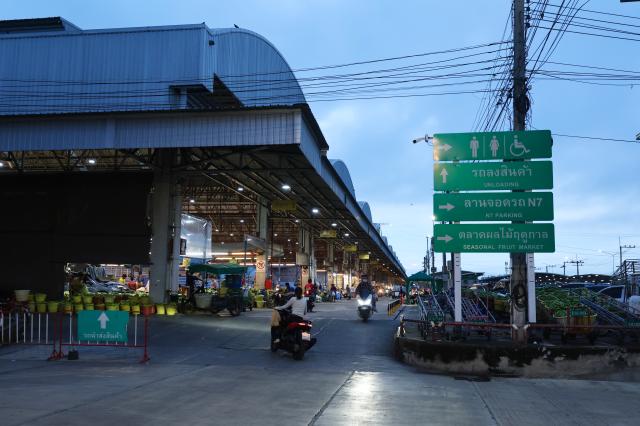
This is a side of Bangkok that guidebooks rarely show. Instead of golden temples or shopping malls, it shows how the city truly functions. Here, you can watch where the fruit eaten by millions of Bangkok residents each morning begins its journey.
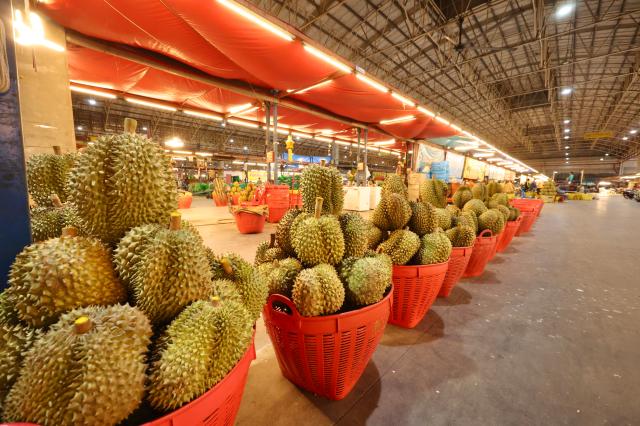
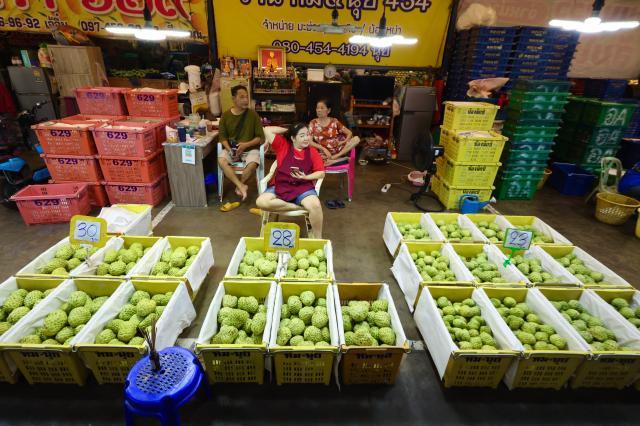
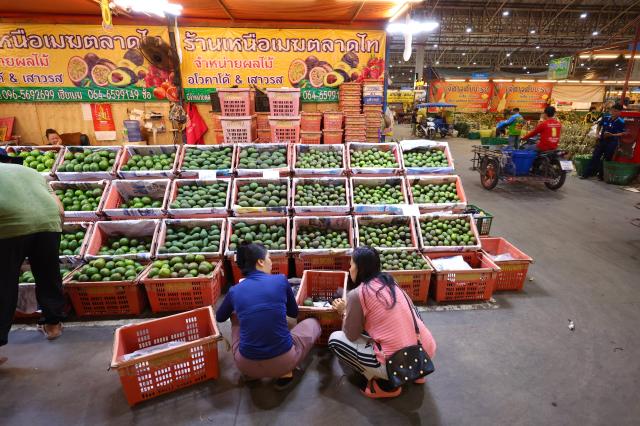
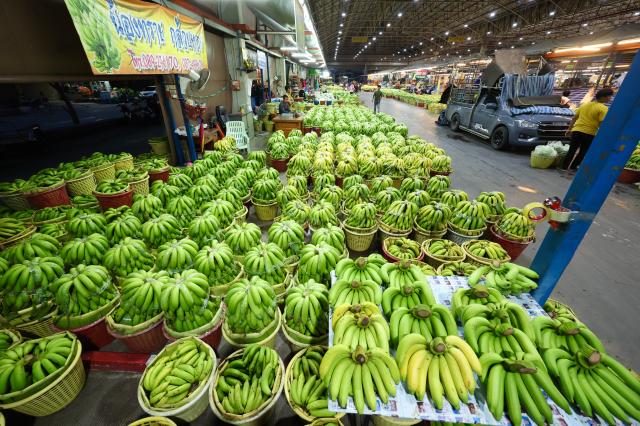
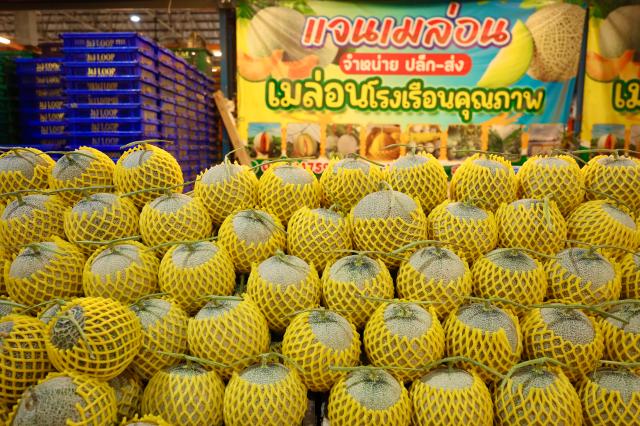
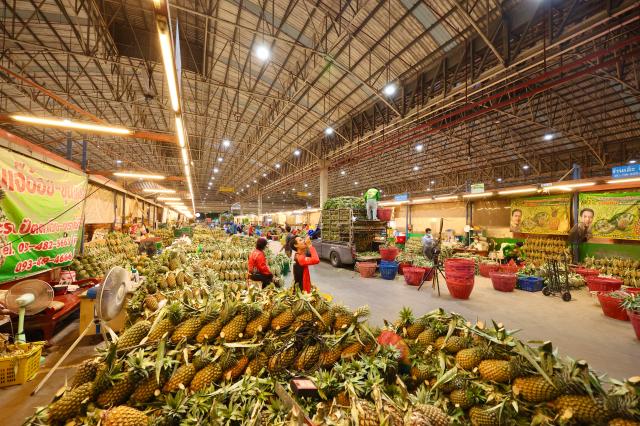
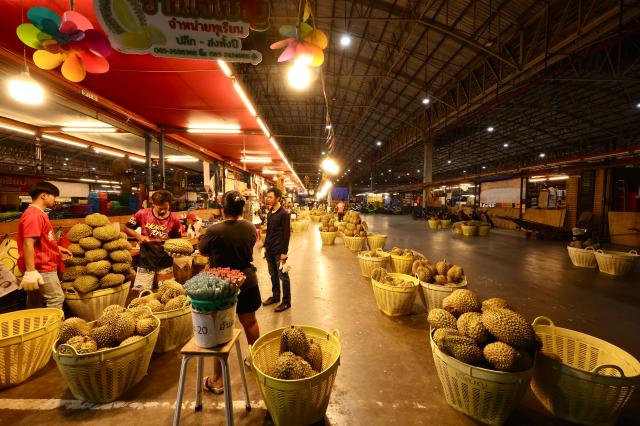
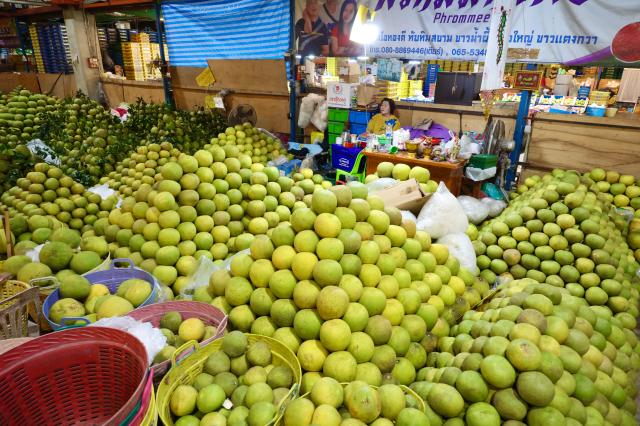
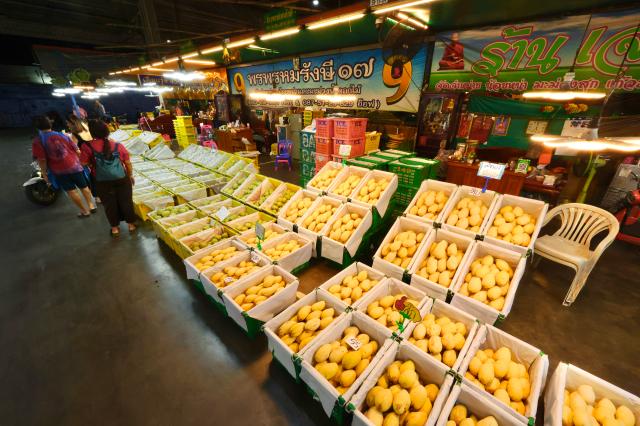
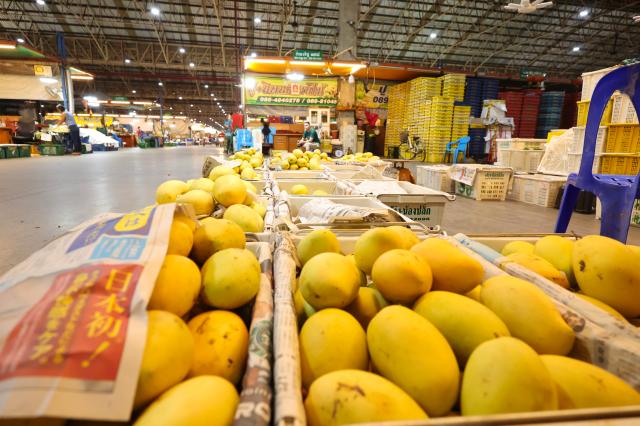
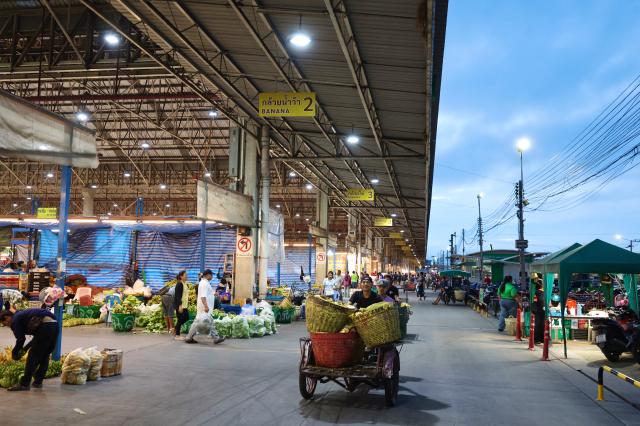
Copyright ⓒ Aju Press All rights reserved.


